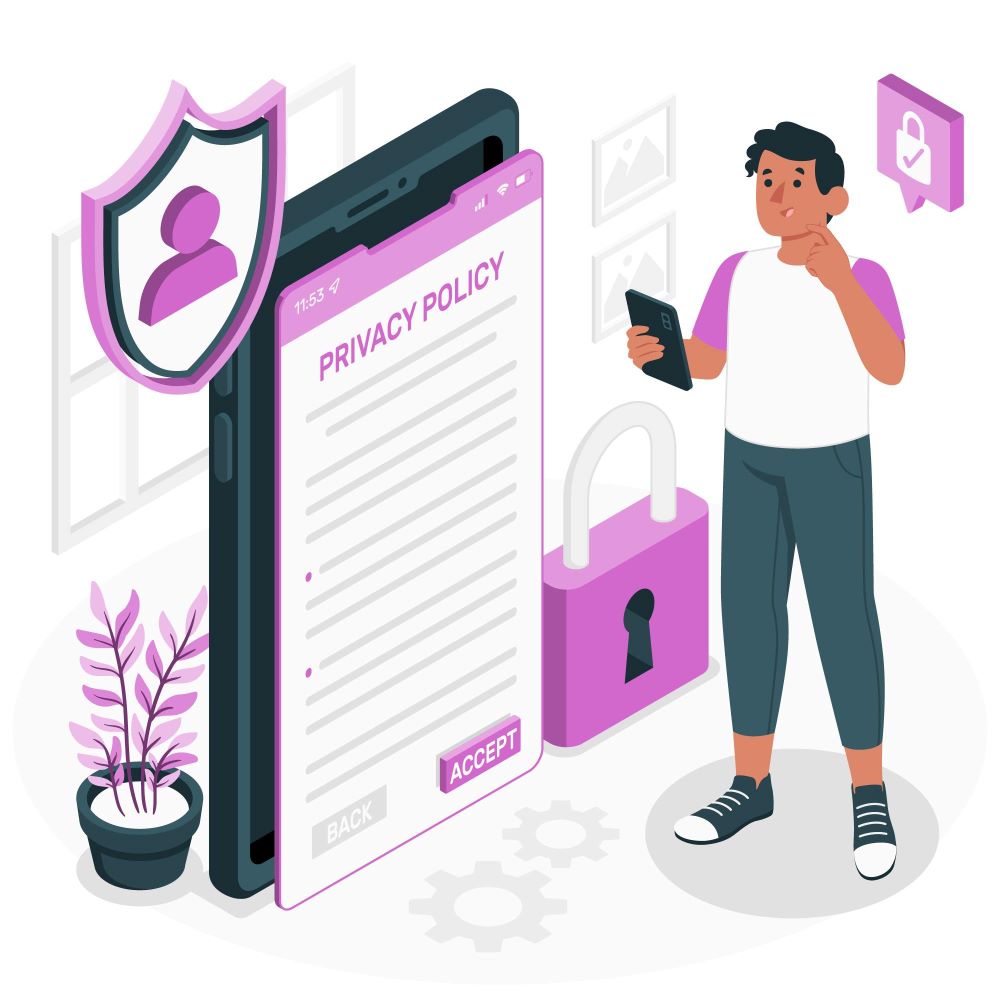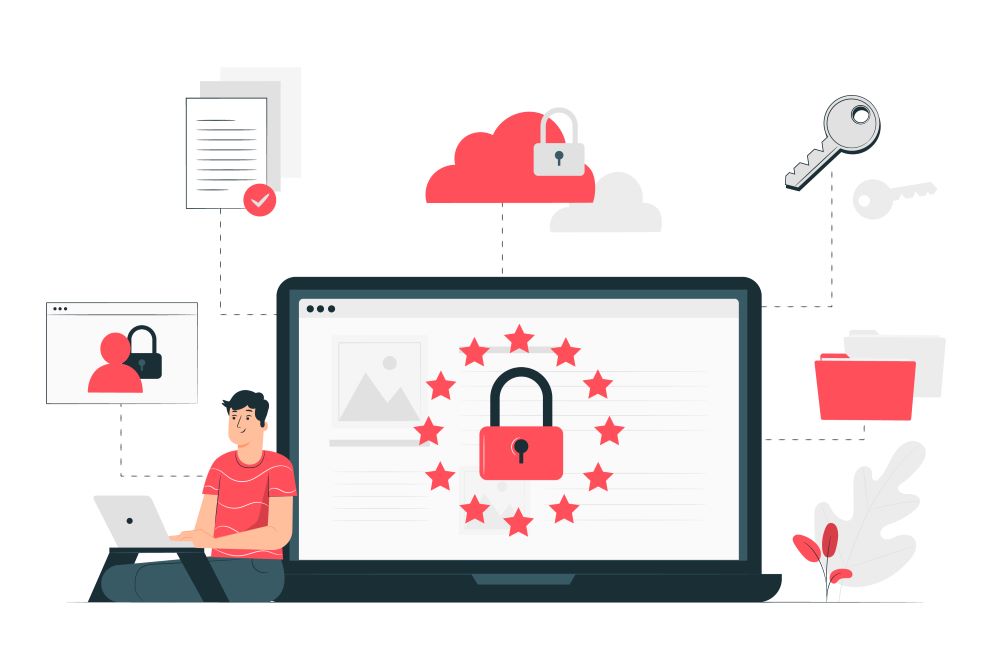With digital adoption burgeoning day by day and personal information flowing freely in a multi-channel mode, it is becoming challenging for global businesses and individuals to keep their data secure. In the wake of the rising risk to digital privacy, various enterprises have started investing heavily in ensuring the security of data privacy.
A recent report released by CISCO states that despite a difficult economic environment in 2022, privacy spending did not decrease, rather grew in some cases. The average spending was $2.7 Million, up significantly from $1.2 Million just three years ago. The most significant growth from 2021 to 2022 occurred at smaller organizations where spending increased more than 17% to $2.0 Million from $1.7 Million. At larger organizations, spending grew more than 13% to $2.6 Million from $2.3 Million.
Business apart, when it comes to data privacy, you as an individual have a lot at stake. The deeper you fall into the net of data privacy, the more complex it gets. Awareness is key to experiencing digital platforms safely.
On this Data Privacy Day (January 28), through this blog, we’ll delve into the details of what data privacy means, its importance, and how you can ensure your digital privacy.
What is Data Privacy?
Data privacy, in its broadest sense, refers to a person’s ability to choose for themselves how, when, and to what extent others are given access to their personal information. This personal data can include someone’s name, address, phone number, online or offline conduct, or other personal characteristics.
The significance of data privacy has grown over time with increased Internet usage. To deliver services, social media platforms, programs, and websites frequently need to gather and keep personal data about users. Consumers may have less privacy than they know because some platforms and applications may collect and use data in ways that go beyond what users had anticipated. The data that other apps and platforms collect might not be adequately protected, which could lead to a data breach that threatens user privacy.
Challenges in Data Privacy
Companies today are under more and more pressure from the market and regulations to improve how they gather, utilize, keep, and destroy Personal Information (PI) and manage data privacy. When new technologies like the Internet of Things (IoT), smartphones, big data, and always-on virtual assistants provide immense data and insights about everything individuals say and do, the pressure is only set to grow. Customers now have a limited number of rights about their data, including the ability to access, delete, and opt out of having their personally identifiable information sold, which increases the demand for effective information governance and management.
Challenges faced by individuals include online tracking, where the user’s activities are continuously tracked through cookies; losing data control; lack of transparency in the way data is used; overexposure of information on social media; and cybercrime.
Why is Data Privacy Important?

Data privacy is crucial because people need to feel confident that their personal information will be handled carefully if they are going to engage in online activities. Businesses utilize data protection practices to convince clients and users that they can be trusted with their personal information.
If people don’t have the opportunity to decide how their information is used or if it isn’t kept private, personal data may be exploited in a variety of ways, including the following:
– Cybercriminals may steal and use personal information to trick or threaten consumers.
– Data may be hacked and used for transactions through your bank account or other platforms.
– Without user authorization, organizations may sell users’ personal information to advertisers or other third parties, which may lead to unwanted marketing and advertising.
– When a person’s activities are followed and observed, especially in authoritarian governments, this may limit their capacity for unrestricted expression.
Any of these results can be hazardous to an individual. For a company, it could result in fines, sanctions, and other legal repercussions as well as irreversibly ruin its reputation.
How to Ensure Data Privacy?
Ken Barth, CEO of Catalogic Software says, “In 2023, organizations will adopt a multi-cloud Kubernetes strategy for flexibility, security, and cost savings. Given that public clouds like AWS, Azure, and Google Cloud are highly available and reliable, DevOps and IT Ops teams may believe that their data is safe and secure in the cloud, such that they don’t need to do backups. Your data is always your responsibility, whether it is in a public cloud, in a SaaS application, or on-premises, especially for meeting regulatory and compliance policies.”
Governments across the world have begun enacting rules governing the types of data that can be gathered about users, how that data may be used, and how data should be stored and secured as technological advancements have expanded data collecting and surveillance capabilities. The following are a few of the most crucial regulatory privacy regimes to be aware of:
– General Data Protection Regulation (GDPR): It establishes rules for how individuals in the European Union (EU) control how their personal data is collected, kept, and processed (including a right to be forgotten).
– Federal data protection regulations: Numerous nations, like Canada, Japan, Australia, Singapore, and others, have thorough data protection regulations in place. Some of them, like the UK’s Data Protection Act and Brazil’s General Law for the Protection of Personal Data, are extremely comparable to the GDPR.
– California Consumer Privacy Act (CCPA): It gives consumers control over their personal data, including the right to request that companies not sell their personal data, and mandates that consumers be informed of what personal data is gathered.
There also exist some industry-specific laws in various countries. Many privacy advocates contend, however, that people still do not have enough control over what happens to their personal information. Countries may come up with more stringent laws in the future.
Tips to Improve Your Digital Privacy

Though there can never be a 100 percent secure way to safeguard your personal data online, you can take preventive measures to protect it as much as you can. You can do so by securing your online accounts, protecting your web browsing, and installing the latest anti-virus software on your computers or mobiles.
Here are some tips to help you protect your digital privacy:
– Minimize sharing your personal information on social networks. Nobody needs to know your birthday or that you just purchased a new house, car, or piece of jewelry online.
– Find out how much personal information is gathered before you sign up for a website or make an online purchase. Is it truly essential to the transaction? How will the website handle your personal information? Prior to downloading a mobile app on your smartphone, consider what it accesses. Does it require access to your phone’s contact list, camera, or microphone?
– Turn off advertising on websites.
– You should be informed when cookies are being used to gather data on a website and given the option to refuse them.
– Privacy is also connected to your cybersecurity policies. So, create secure and unique passwords. To manage them, use a password manager.
– Installing the most recent patches will keep your computers’ and smartphones’ operating systems current. Patching your home WiFi router is important.
Final Thoughts
Technology is ever-changing. The best we can do to avail of its benefits and avoid the risks of data theft is by educating ourselves. A good way is to obtain professional knowledge from experts just like through ABM College’s programs in technology, health, and business. Qualified instructors teach the latest industry trends and software to equip students with the necessary skills to excel in their IT careers.
Explore our cybersecurity diploma program to be proficient in tactics of data security.
Contact us now to know how we can help.
Read more topical articles here.
About The Author

Private Career College
ABM College is a leader in career-focused education, committed to empowering students with industry-relevant skills. With expert instructors and practical training, ABM College delivers high-quality programs in health, business, technology, and more, ensuring graduates are prepared to meet workforce demands. Known for its supportive learning environment and a focus on real-world application, ABM College is a trusted educational partner helping students achieve professional success across Canada.
